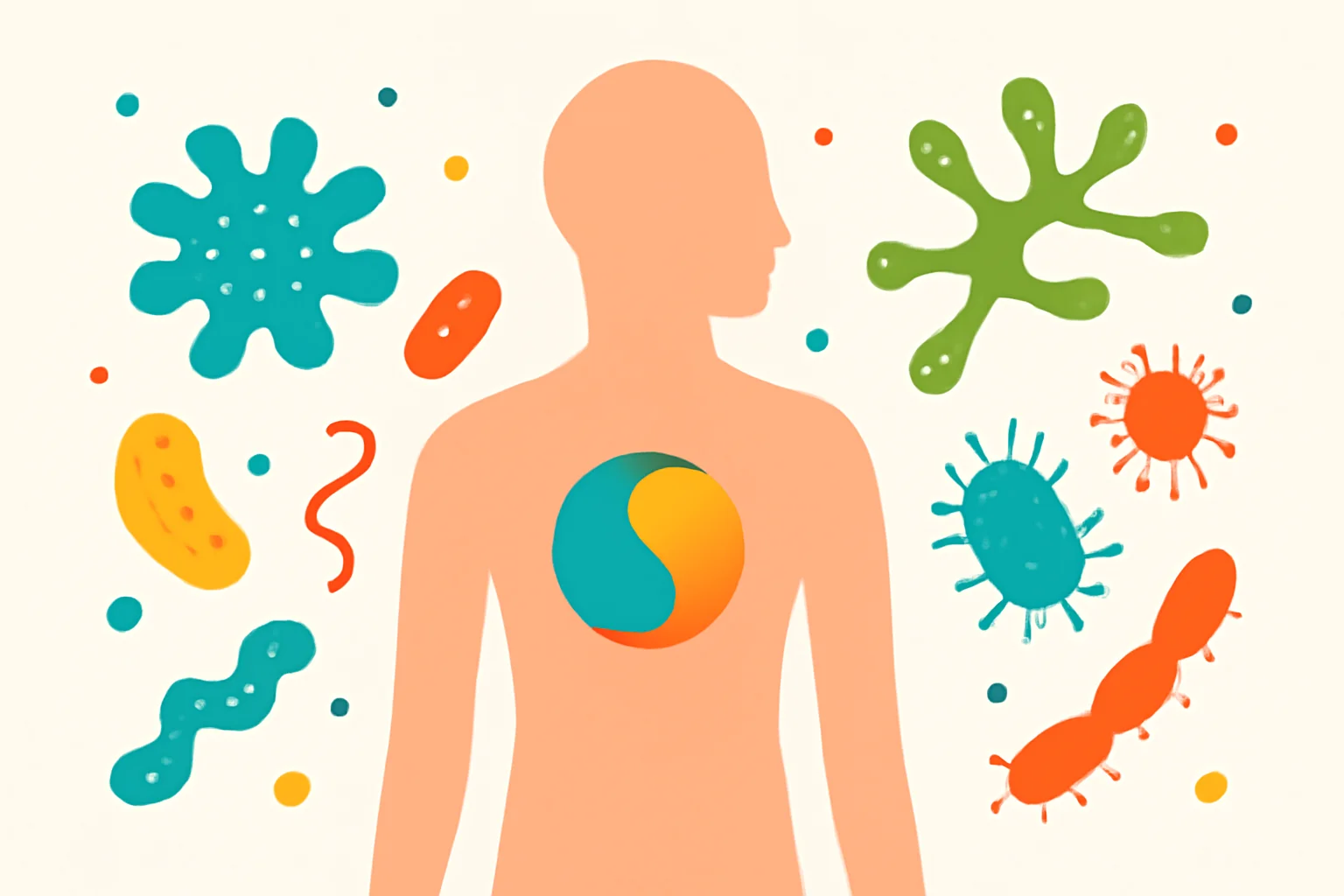
The role of the microbiome in preserving and improving our health
The concept of the microbiome has increasingly come to the forefront in recent years, particularly in the fields of health and nutrition. The microbiome refers to the totality of microbes found in our bodies and on our skin, including bacteria, fungi, viruses, and other microorganisms. These microbes are not merely passive inhabitants of our bodies; they actively participate in numerous biological processes, thereby significantly impacting our health, well-being, and the functioning of our immune system.
The Composition and Role of the Microbiome in Health
The composition of the microbiome is extremely diverse: the ratio and types of different microbes can vary from person to person. The gut flora, which is the community of microbes found in the intestines, represents the largest share of the microbiome. The gut flora is primarily composed of bacteria, but fungi, viruses, and protozoa are also present. Maintaining a healthy gut flora is crucial, as the microbes in the gut affect digestion, nutrient absorption, and vitamin synthesis.
The role of the microbiome is not limited to physical health. The gut flora is also directly connected to the immune system, as the microbes in the gut help regulate the immune response, thereby contributing to defense against infections. Additionally, the microbiome influences inflammatory processes, which play a fundamental role in the development of chronic diseases such as diabetes, cardiovascular diseases, and various autoimmune disorders.
Research shows that the composition and diversity of the microbiome are closely linked to mental health as well. Through the gut-brain axis, the gut flora can influence mood, stress management, and even cognitive functions. Some studies suggest that changes in the gut flora may be associated with depression and anxiety, offering new approaches to the treatment of mental disorders.
Supporting the Microbiome through Nutrition
To maintain the health of the microbiome, proper nutrition is essential. Foods rich in fiber, such as vegetables, fruits, and whole grains, are nutritious staples for the beneficial bacteria of the gut flora, thus promoting their proliferation. Prebiotics, which serve as food for gut bacteria, are particularly important. Onions, garlic, bananas, chicory, and asparagus are excellent sources of prebiotics.
Moreover, probiotics, which contain beneficial bacteria, also play a crucial role in maintaining the health of the microbiome. Consuming yogurt, kefir, sauerkraut, and other fermented foods can help restore the balance of the gut flora. Regular intake of probiotics can not only increase the diversity of the gut flora but also help reduce inflammation and alleviate digestive issues.
It is important to consider that the consumption of processed foods, sugar, and artificial additives can negatively affect the microbiome. Such foods are generally low in nutrients and can contribute to a shift in the gut flora, leading to various health problems. Therefore, it is advisable to base our diet on natural, fresh foods that are rich in nutrients and antioxidants.
The Relationship between the Microbiome and Stress
The connection between stress and the microbiome is increasingly becoming a focus of research. Stress, whether physical or mental, significantly impacts the composition of the gut flora, which in turn affects our overall well-being and health. In response to stress, the body produces cortisol, the stress hormone, which can disrupt the balance of the gut flora and enhance inflammatory processes.
Studies have shown that chronic stress can reduce the diversity of the gut flora, which may contribute to various health issues such as digestive disorders, autoimmune diseases, or even mental health problems. Through the gut-brain axis, the microbiome influences the central nervous system, so changes in the gut flora can directly affect mood and mental state.
Stress management techniques such as meditation, breathing exercises, and regular physical activity can help preserve the health of the microbiome. These methods are effective not only in reducing stress levels but also in maintaining the balance of the gut flora. Regular exercise, for instance, stimulates the proliferation of gut bacteria, while meditation and mindful breathing can help lower stress hormone levels in the body.
Future Research Directions in the Field of Microbiome
Research on the microbiome is still a young field that holds tremendous potential. Future research aims to gain a deeper understanding of the relationships between the composition and functioning of the microbiome and how these influence our health. The role of the microbiome is becoming increasingly prominent in personalized nutrition and medical treatments.
Researchers are also striving to influence the gut flora through various probiotic and prebiotic treatments that may help in the prevention and treatment of various diseases. Future therapies aim to offer personalized solutions based on the unique composition of the microbiome, which can effectively assist in chronic conditions such as diabetes, obesity, or inflammatory bowel diseases.
Furthermore, microbiome research also offers new approaches in the field of mental health. Further investigation of the gut-brain axis may enable the development of new therapies for mood disorders and anxiety. The goal of research is to better understand how gut bacteria affect neurotransmitter production and mood regulation.
**Warning:** This article does not constitute medical advice. Always consult a physician for health issues and follow their recommendations.

